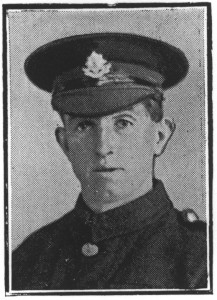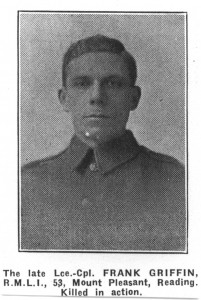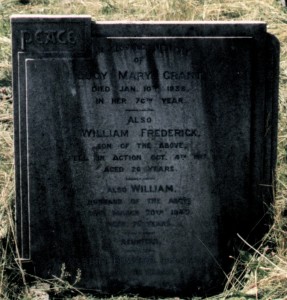William Thomas Herbert
Private 22047
2nd Royal Berkshire Regiment
Division 7
 |
William Thomas Herbert is remembered on the family grave. The Berkshire Family History Society classification number is 7110. He was the son of William and Jane Maria Herbert. The 1911 census indicates that he was a labourer in the brewery. His mother had been a widow for more than ten years, her occupation is given as charwoman at the brewery. At the time the family comprised William’s older sister and two cousins. The family lived at 8 Orchard Street.
William Thomas Herbert is buried at Brandhoek New Military Cemetery, Vlaanderen, Belgium. Grave location IV.B.14. He died on the 4th August 1917 and was aged 30. The 3rd Battle of Ypres began on the 31st July 1917, William Herbert was wounded during that battle. Brandhoek was comparatively safe from shell fire during the war. Field ambulances were posted there and during 3rd Ypres it was the site of various Clearing Stations. The New Military Cemetery was opened to cope with the large number of casualties from that battle. Also buried in the cemetery is Captain Noel Chavasse, VC and Bar, MC, one of only three men who won the Victoria Cross twice.

